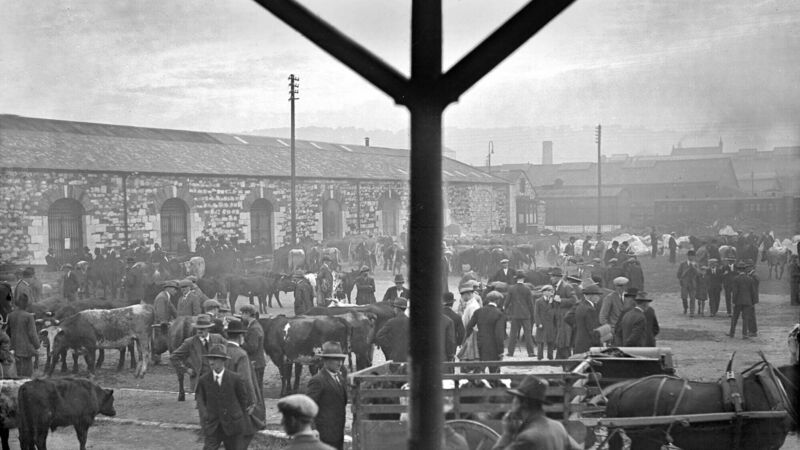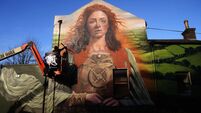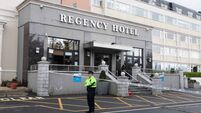Archives: Squandering public money by demolishing sound buildings for the expensive sport of rebuilding them

The cattle market at the Cornmarket, adjacent to Cork City Hall, pictured on September 12, 1929.
The very vexed question of a cattle market for this city is still being discussed, and so far nothing definite has been done.
There can be little question that the Local Government Board was quite right when they turned down the Cornmarket site. The deplorable decision of the Cork Corporation to go to the double expense of taking down and re-erecting the wretched make-shift Town Hall which never ought to have been used for such a purpose shows but little concern for the credit of the city.














